The Defence Committee’s inquiry into “Defence in the Grey Zone” featured sobering testimony from Sir Alex Younger, former chief of MI6, who highlighted the increasingly complex threats posed by adversarial states such as Russia, China, North Korea, and Iran.
Sir Alex outlined how these nations exploit vulnerabilities in liberal democracies, with Russia standing out for its perception of being in a state of conflict with the West.
Sir Alex provided a stark assessment of Russia’s approach to hybrid warfare. “Looking at Russia, the asymmetry in the relationship with Russia is, of course, all about capabilities and systems, but it is fundamentally about the fact that they think they are at war with us, and we do not think we are at war with them,†he said.
He explained how President Vladimir Putin views hybrid tactics as a form of horizontal escalation—a way to retaliate for perceived Western actions in Ukraine. “Putin is seized of the idea of horizontal escalation, which he believes is a reciprocal response to what we are doing in Ukraine. It is completely false and erroneous, but that is how he looks at it,†Sir Alex explained. This mindset drives Russia to actively deploy capabilities just below the threshold of armed conflict, such as cyberattacks, disinformation campaigns, and sabotage, to undermine the UK and its allies.
In contrast, Sir Alex described China’s hybrid activities as driven by a fundamentally different agenda. “Looking at China, it is a completely different situation,†he said. “They do not conceive of themselves as being at war with us, and Chinese aims are, in fact, very different. They are essentially that China should rise and be allowed to pursue its own interests unfettered.â€
Sir Alex pointed to China’s campaign against Taiwan as a prime example of hybrid warfare, describing it as a “textbook on subversion, cyber and political harassment.†While less overtly combative than Russia’s approach, China’s sophisticated use of hybrid tactics remains a significant challenge.
Sir Alex emphasised that the UK faces hybrid threats from a “limited and recognisable number of actors.†He identified Russia, North Korea, Iran, and China as the principal sources of concern, each shaping their hybrid strategies based on their unique national situations and objectives.
For Russia, the combination of its belief in an ongoing conflict with the West and its capabilities in disinformation and cyberattacks makes it a particularly potent threat. Meanwhile, countries like North Korea and Iran use hybrid methods to offset their conventional military weaknesses, focusing on asymmetric tactics.
A recurring theme in Sir Alex’s testimony was how authoritarian regimes exploit the inherent vulnerabilities of democratic systems. “One of the manifestations of our values is a set of laws and boundaries,†he explained. Democracies differentiate between wartime and peacetime actions, with legal and institutional frameworks that limit responses during peace.
“If you are from a political dispensation that does not do that stuff, does not have any political accountability and can move at the speed of the autocratic whim, as opposed to the democratic will, you will have some potential advantages,†Sir Alex noted. He warned that adversaries could “do stuff that has the effect of war, but does not cross our threshold, in the knowledge that we will be constrained in our response.â€
Sir Alex stressed the importance of recognising and addressing these threats, calling for increased resilience in the face of hybrid warfare. “There are things that you need to run a liberal democracy that are intrinsically vulnerable,†he said, adding that defending against these threats requires a nuanced and robust approach.




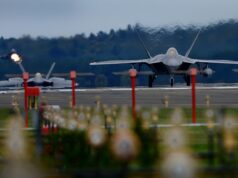
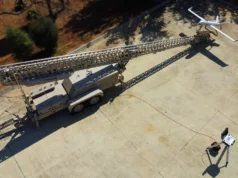


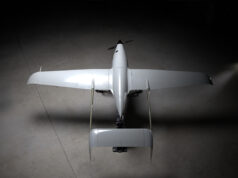
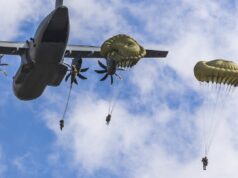
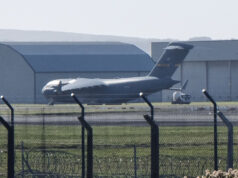

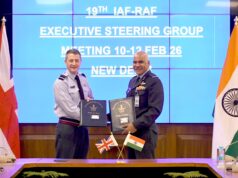

excellent report George that captures the current situation well
So Russia sees itself as being at war with the West. No surprises there then at least not some of us.
The problem with the kind of grey warfare that Russia is using is that it could easily go too far one day and flash over into a real shooting war. The question is, what comes after the war in Ukraine? Currently, Russia is tied up in a slow costly grinding war in Ukraine but what happens when that ends? Putin and Russia seem to have an endless list of grudges towards the west so what will Putin do next..? They will certainly look to exploit a perceived weakness somewhere and I have a feeling they will be spoilt for choice. The North Sea and Atlantic infrastructure are sitting targets at the moment.
However, there is always the risk that Putin might try something silly that goes just a little too far. After all there is precious little we could do after Salisbury and Russia has become a master at denial even when it is patently obvious they did it. Salisbury was reckless, next time it could be deliberate.
Cheers CR
The one nation I think Putin is most wary of is Finland.
Finland joining NATO is perhaps the worst unexpected outcome of the Ukraine war from a Russian viewpoint. Finland is not afraid of pushing back. Sweden has been trying to balance the two for decades. Now both are i now in NATO. They are the shakeup NATO needed in my POV.
I would add Poland to the list of countries that Putin is wary off. It’s no secret that Poland is spending a lot of defence and greatly expanding its capabilities. If the worse happened and war broke out between Russia and NATO then Kaliningrad may not last long if attacked by Poland.
Estonia is the vulnerable one for me as it is isolated from the major NATO powers with very little depth available to trade space for time. Russia could aim to cut Estonia off from the rest of NATO by mounting an attack on Latvia… A quick smash and grab move, especially if other major European powers are distracted with a significant grey zone attack.
The Baltic States were part of the Soviet Union, unlike Poland or the other former members of the Warsaw Pact, so I think Putin will see grabbing the Baltic States as making mother Russia whole again. Ukraine is teaching him a lesson, but is he listening?
Cheers CR
Every leader across Europe needs to grow a back bone dictators back down to strength weakness only provokes them
Don’t think this will make any difference to HMG thinking on Defence spending sadly .
It’s interesting that that say china does not think it’s at war with with the west just in competition…there is still a bit of misunderstanding in that china defines the boundary’s of war differently to even Russia and is so profoundly different from the west’s interpretation that we simply don’t recognise it.
“Chinese Communist Party (CCP) can never tolerate such a happy ending. The CCP must instead view itself as perpetual victim and implacable rival of the West.†Thomas F. Lynch III
China is at war with the west because the CCP needs to be at war with the west..it’s why it employs 3 million political warfare operatives who’s job it is to attack the west politically.
Plausible deniability appears to be the norm in the international arena.
Education and intelligence are two completely different things.
In my humble opinion “never underestimate the enemy” is currently out of fashion.
Make peace not war ♾ï¸â¤ï¸â˜®ï¸